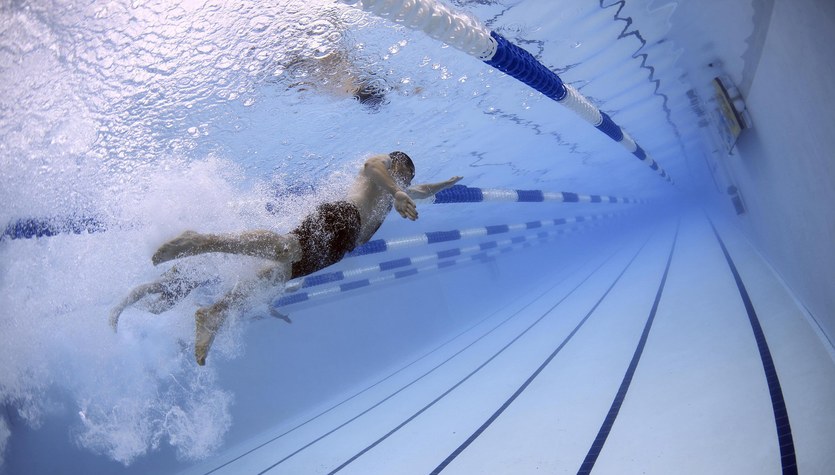Even simple materials like hydrogels can adapt to their surroundings in ways similar to what has been observed in living systems. This was demonstrated by research by Dr. Yoshikatsu Hayashi’s team at the University of Reading, where scientists attached electrodes to a hydrogel and taught it to play table tennis. Pong is a classic video game and is a very simple simulation of table tennis.
A new type of “smart” materials.
Researchers at the University of Reading have developed a simple hydrogel, a soft, flexible material that can learn to play a simple 1970s computer game. Furthermore, when combined with a computer simulation of a classic game using a multi-electrode array, it showed improvements in performance over time. The researchers were inspired by work they conducted two years ago in which Australian researchers taught a group of human and mouse brain cells to play the classic video game.
“Our research shows that even very simple materials can exhibit complex adaptive behaviors typically associated with living systems or advanced artificial intelligence. This opens up exciting possibilities for developing new types of ‘smart’ materials that can learn and adapt to their environment,” Hayashi said.
The rest of the article is below the video.
The researchers believe that the “learning” results from the movement of charged molecules within the hydrogel in response to electrical stimulation, creating a form of “memory” in the material itself. “Ionic hydrogels can achieve the same kind of memory mechanics as more complex neural networks. We’ve shown that the hydrogels can not only play ping-pong, but can also get better at it over time,” said co-author Vincent Strong from the University of Reading.
The results show that artificial materials can use a basic form of “memory” to boost performance. “The system encodes memory in the same way that a riverbed encodes a river’s memory,” said Brett Kagan of Cortical Labs in Melbourne, Australia, lead author of a study two years ago that showed that brain cells in a dish could learn to play table tennis, if they were electrically stimulated in a way that gave them feedback about their performance.
Hydrogels
Hayashi and his colleagues focused on gelatinous materials, or hydrogels. They contain charged particles called ions. When this type of hydrogel is electrically stimulated, the ions move through the material and drag water molecules with them, causing the hydrogel to change shape.
– Our work explores the question of whether simple artificial systems can compute in closed loops, similar to the feedback loops that allow our brains to control our bodies. The basic principle of both neurons and hydrogels is that the migration and distribution of ions can serve as a memory function that can be linked to the sensorimotor loops in Pong’s world. In neurons, ions move inside the cells. Hayashi recognized that they move outward in the gel.
Learn the game
To test whether this “memory” could enable the hydrogel to play ping-pong, the researchers used electrodes to attach the material to the toy. The toy was divided into six quadrants, which corresponded to six pairs of electrodes. Each time the ball passed through one of the squares, the corresponding electrodes sent an electrical signal to the hydrogel, causing the ions to change position. The sensing electrodes then measured the electrical current of the rearranged ions and sent this information back to the computer, which interpreted it as a command to move the toy paddle to a new position. Over time, this formed a basic “memory” because the ions’ movement depended on their previous rearrangement.
Initially, the hydrogel hit the ball about half the time, but it increased its hit rate to 60 percent in about 24 minutes, suggesting that the material was updating its “memory” of the ball’s motion using the ionic pattern. The improved performance also led to longer throws—periods when the ball was in play.
The researchers conducted controlled experiments that involved feeding the hydrogel incorrect information about the ball’s position or making it act “blindly” through lack of stimulation. This meant that the position of the ions in the gel did not accurately reflect the game on the screen. The hydrogel showed no signs of improvement under these conditions, suggesting that it only improves when given the correct information.
The authors of the paper claim that the hydrogels represent a different kind of “intelligence” than most existing AI algorithms derived from neural networks. They could be used to develop new, simpler algorithms. In the future, the scientists plan to continue studying the hydrogel’s “memory,” analyzing the mechanisms behind it and testing its ability to perform other tasks.
Source: University of Reading, Nature

Echo Richards embodies a personality that is a delightful contradiction: a humble musicaholic who never brags about her expansive knowledge of both classic and contemporary tunes. Infuriatingly modest, one would never know from a mere conversation how deeply entrenched she is in the world of music. This passion seamlessly translates into her problem-solving skills, with Echo often drawing inspiration from melodies and rhythms. A voracious reader, she dives deep into literature, using stories to influence her own hardcore writing. Her spirited advocacy for alcohol isn’t about mere indulgence, but about celebrating life’s poignant moments.








